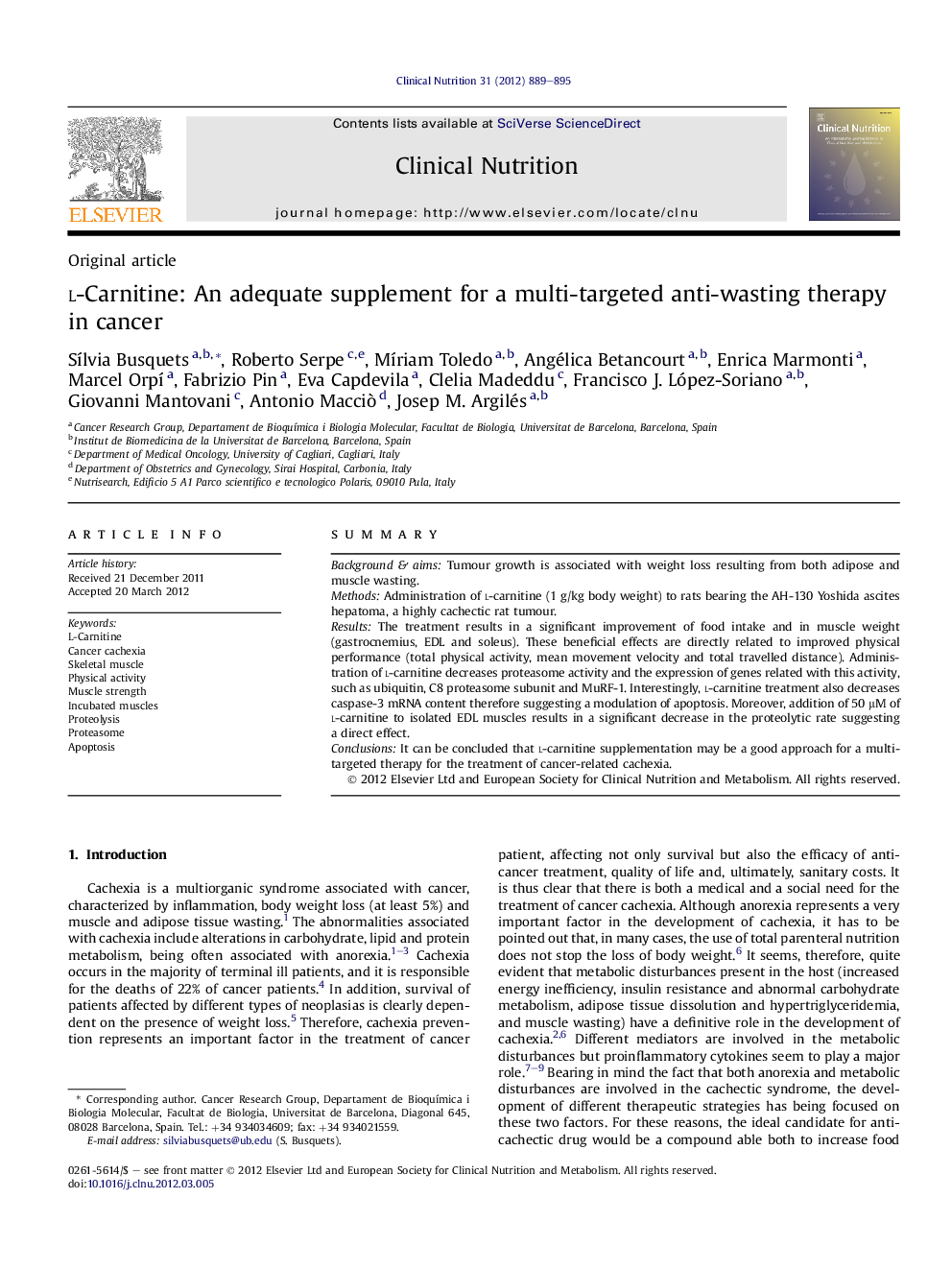| Article ID | Journal | Published Year | Pages | File Type |
|---|---|---|---|---|
| 2683018 | Clinical Nutrition | 2012 | 7 Pages |
SummaryBackground & aimsTumour growth is associated with weight loss resulting from both adipose and muscle wasting.MethodsAdministration of l-carnitine (1 g/kg body weight) to rats bearing the AH-130 Yoshida ascites hepatoma, a highly cachectic rat tumour.ResultsThe treatment results in a significant improvement of food intake and in muscle weight (gastrocnemius, EDL and soleus). These beneficial effects are directly related to improved physical performance (total physical activity, mean movement velocity and total travelled distance). Administration of l-carnitine decreases proteasome activity and the expression of genes related with this activity, such as ubiquitin, C8 proteasome subunit and MuRF-1. Interestingly, l-carnitine treatment also decreases caspase-3 mRNA content therefore suggesting a modulation of apoptosis. Moreover, addition of 50 μM of l-carnitine to isolated EDL muscles results in a significant decrease in the proteolytic rate suggesting a direct effect.ConclusionsIt can be concluded that l-carnitine supplementation may be a good approach for a multi-targeted therapy for the treatment of cancer-related cachexia.
